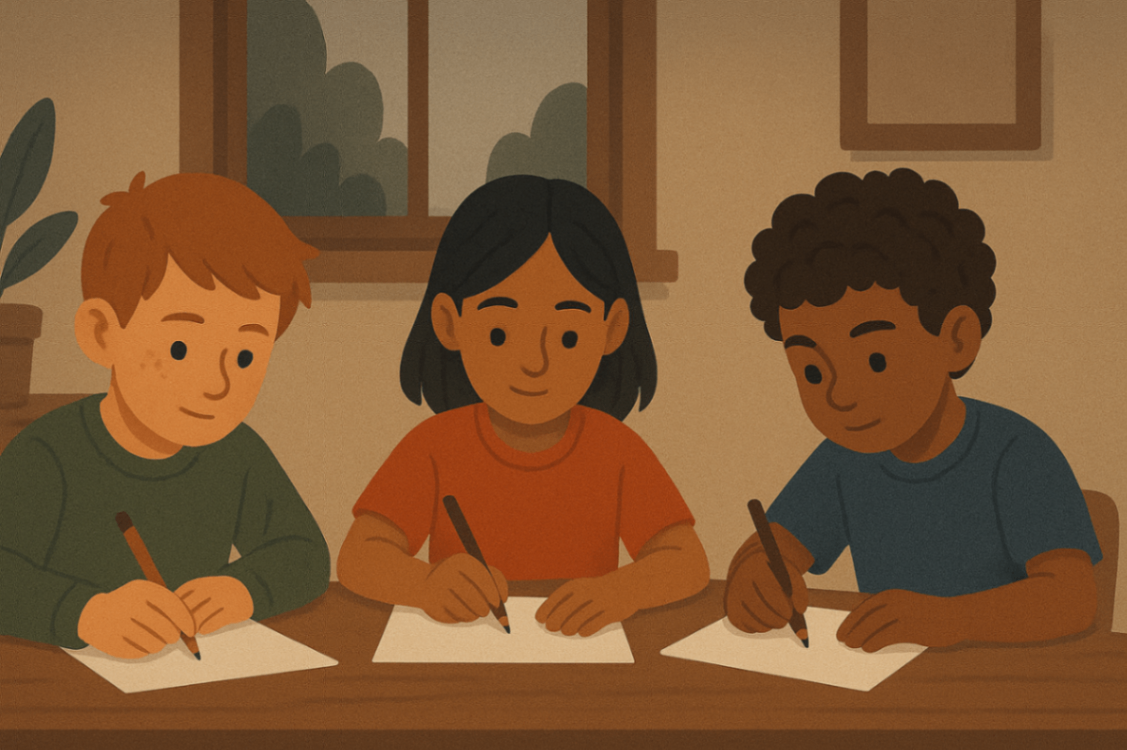
do children need diagnosis for ndis behaviour support funding?
25 June, 2025

Key Highlights
-
The NDIS (National Disability Insurance Scheme) offers behaviour support funding to assist children in managing challenging behaviours.
-
A formal diagnosis for therapy is not always mandatory—it depends on individual circumstances and the funding criteria met.
-
Families can access help from NDIS access support providers like early childhood partners and local area coordinators.
-
NDIS behaviour support focuses on positive strategies that improve a child’s quality of life, independence, and dignity.
-
Personalised support plans are developed by behaviour specialists to ensure safe, respectful interventions.
Introduction
The National Disability Insurance Scheme (NDIS) plays a key role in improving life outcomes for children with disabilities through specialised NDIS behaviour support. A common concern for parents is whether a diagnosis for therapy is needed to access this funding. The short answer: not always. While a diagnosis can help, many children access the right supports through different NDIS eligibility pathways.
In this article, we’ll explore how funding works, when a diagnosis is required, and how families in Liverpool and nearby suburbs—including Casula, Prestons, Wattle Grove, and Moorebank—can get started.
Who Can Access Behaviour Support Funding Under the NDIS?
 Behaviour support funding from the NDIS is there for children who are NDIS participants. The NDIS helps families and carers who deal with tough NDIS behaviour support is available to children who meet the NDIS eligibility requirements. These typically include having a disability that significantly affects daily functioning. However, a formal diagnosis isn’t the only way to demonstrate this.
Behaviour support funding from the NDIS is there for children who are NDIS participants. The NDIS helps families and carers who deal with tough NDIS behaviour support is available to children who meet the NDIS eligibility requirements. These typically include having a disability that significantly affects daily functioning. However, a formal diagnosis isn’t the only way to demonstrate this.
Parents can work with NDIS access support services such as early childhood partners and local area coordinators to gather the right evidence. This support ensures children receive a behaviour plan tailored to their unique needs.
Need help getting started? Read our guide on how to access specialised behaviour support in Liverpool.
Key Aims of Behaviour Support Funding for Children
Behaviour support funding helps children with disability to do well and feel strong in their daily life. It works to find and fix the causes of difficult behaviours by using positive behaviour support and evidence-based strategies. The goal of NDIS behaviour support is to improve quality of life and emotional wellbeing. Ituses evidence-based strategies to reduce harmful or challenging behaviours while teaching new, positive skills.
Key objectives include:
-
Developing individualised support plans based on funding criteria.
-
Making the child’s quality of life better by using individual checks and help.
-
Creating a clear behaviour support plan that fits what the child needs.
-
Helping the child learn new skills that lead to good behaviour.
-
Bringing families, carers, and mental health professionals together so the child’s all-around growth and mental health are looked after.
Through this positive behaviour support, NDIS funding makes sure all the support follows what the child wants, as well as respects their rights. In the end, these steps help the child grow skills, improve mental health, and become stronger without using strict or limiting actions.
Does NDIS Require a Formal Diagnosis for Behaviour Support?
No, a diagnosis for therapy is not always necessary. Children can access supports if other types of documentation show they meet the NDIS eligibility requirements.
For example:
-
Reports from psychologists or therapists.
-
School or daycare observations.
-
Assessments done by early childhood partners.
This flexibility helps ensure children who need help aren’t left behind, especially in early developmental stages.
When a Diagnosis Is Needed—and When It’s Not
A formal diagnosis may be helpful for children with autism, ADHD, or psychosocial disabilities. In some cases, it strengthens your case when applying under the NDIS. But through Early Childhood Early Intervention (ECEI) and other NDIS access support options, children without a diagnosis may still qualify. Local area coordinators play a vital role in explaining these funding criteria and building a strong application.
Pathways to Accessing Behaviour Support Without a Diagnosis
 Families can still get support by:
Families can still get support by:
-
Connecting with an early childhood partner or LAC in Liverpool or nearby suburbs like Glenfield or Chipping Norton.
-
Collecting observational evidence from childcare providers, therapists, and support workers.
-
Using community services or allied health reports to demonstrate need.
Learn more about functional behaviour assessments for Liverpool families to support your application.
Early Childhood Early Intervention (ECEI) Approach
The Early Childhood Early Intervention (ECEI) approach puts a strong focus on getting help to young children with developmental challenges as soon as possible. This early intervention uses positive behaviour support to help kids in the best way. It brings together behaviour support practitioners, local area coordinators, and early childhood partners so they all work as one team.
With ECEI, children are given tailored plans. They get the disability supports they need for their unique situation. These supports help them build better community connections. This leads to a better quality of life for not just the children but also their families and carers.
The ECEI works within Australia's NDIS system. It is there to give help, support families and carers, and build a strong network. This way, ECEI makes sure more children, carers, and their loved ones can grow, thrive, and be part of the community.
Getting NDIS Behaviour Support That Fits Your Child’s Needs
An NDIS behaviour support plan must be individualised. Behaviour support practitioners work closely with families to ensure strategies are practical, respectful, and aligned with the child’s goals.
Families in Liverpool, Hoxton Park, and Lurnea often benefit from integrated therapy teams that include behaviour specialists, allied health providers, and support coordinators. This team approach ensures your child’s needs are fully understood—even without a formal diagnosis for therapy.
Conclusion
A formal diagnosis can strengthen your NDIS application—but it isn’t always required. Through flexible NDIS access support, families can explore other ways to meet funding criteria and get their child the help they need.
Whether you live in Liverpool, Warwick Farm, or Hammondville, accessing NDIS behaviour support is possible with the right guidance.
Need help navigating your child’s NDIS eligibility? Book your appointment now and speak with our experienced team.
Frequently Asked Questions
Can children without a diagnosis receive behaviour support funding under NDIS?
Yes, children who do not have a diagnosis can still get behaviour support funding from the NDIS. Families need to show enough proof that the support is needed. Early partners and practitioners help with this process so you do not have to only use a diagnosis. With their help, people can find the right behaviour support at the right time.
What conditions commonly qualify for NDIS behaviour support?
People with mental health conditions like autism, ADHD, or other learning or thinking problems named in the statistical manual of mental disorders can often get NDIS behaviour support in Australia. To learn more, families can look at official guidelines in the NDIS PDF files.
How do families gather the right evidence for an NDIS application?
Families need to team up with mental health professionals, like psychiatrists or people who give behaviour support, to keep a record of what their child needs and how they act. You can use things like medical reports, school tests, and notes that match what the NDIA asks for when you send in an application. This will help the mental health team see what support the child might need.
Are behaviour support plans mandatory for all children receiving funding?
Yes, behaviour support plans are key if you want to get funds for behaviour help with the NDIS. These plans are made by people who know how to give this support. The plans show steps and ideas that fit with what a child needs. The carers and families of the child also give their thoughts for these plans. This helps make sure the support works well for everyone.
.svg)






